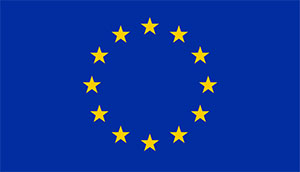Equal Treatment:
From 2020 to 2022 the European Social Partners in the Live Performance sector undertook a European project focused on advancing gender equality across all areas of work in the sector. This work delivered a website and resource centre, launched in 2022 to bring together the outcomes of the European Project: ‘Gender Equality on and off the Stage: A Mapping Project of the European Live Performance Sector’. Key among these is a collection of good practice examples pertaining to gender equality in the Live Performance sector across Europe. Many are social partner initiatives, or projects which involve them, presenting a useful addition to other existing resources in the cultural sector. They are presented in an interactive, searchable database and you can read more about the methodology for the selection and inclusion of the good practices, as well as search the database, in the dedicated web section. This collection presents the most relevant and recent practices in a standardised format. They span a broad range of examples including legal and policy measures, initiatives and agreements of social partners, actions by civil society and artistic movements, all dedicated to promoting gender equality in the live performance sector. A specific focus includes the impact of the Covid-crisis on women, and the topic of transgressive behavior.
Elsewhere on the website you will find a brief explanation of the general context of the project and the methodology used; a wealth of recordings and resources arising from the four online Gender Equality Thursday webinars held in the course of the project; as well as some overall reflections and a list of useful resources regarding Gender Equality in the Live Performance sector.
Sources:
https://gender-equality-onandoffstage.eu/en/
The European social partners in the Audiovisual sector also cooperate to promote gender equality, diversity and inclusion in broadcasting and audiovisual productions.
In 2011 they adopted a Framework of Actions on gender equality that put forward joint considerations and recommendations for actions in five key areas: gender portrayal, equality of pay, equality in decision making, gender roles in the workplace, and reconciliation of work and private life. In 2018, they launched a joint mapping exercise to collect information on the state-of-play and to identify the actions still needed to keep pushing for equality. The result of this work was published in May 2020 in the form of a Good Practice Handbook. In 2023 they updated the Framework of Actions on gender equality and added a new chapter dedicated to the elimination of bullying, harassment, and sexual harassment at work. In 2022 they implemented a 2-year project to improve the capacity of the industry to implement diversity policies. In 2025 they published a Framework of Actions (FoA) on diversity and inclusion.
Source:
https://www.equalitydiversityinavsector.eu/
Occupational Health and Safety:
The European Social Partners are committed to promoting the highest standards in health and safety in Live Performance workplaces in Europe. This is reflected in regular good practice exchanges in their programme of work pertaining to all aspects of health and safety in the sector.
They have also joined hands with the European Agency for Occupational Health and Safety (EU-OSHA) to develop and make available European Online Interactive Risk Assessment (OIRA) tools for their sectors. These OIRA tools are practical planning tools which guide users through a systematic risk assessment process enabling them to anticipate and prevent or mitigate health and safety risks throughout all parts of the workplace and production process.
Undertaking such a risk assessment is a legal obligation for employers, in collaboration with the workers, and an OIRA tool can help them ensure that it is carried out in a rigourous and thorough way with targeted support, as the tool offers suggested approaches and solutions to the risks identified. It is also geared towards being a user-friendly, accessible and easy to use tool. This is briefly explained in a short video introduction to the OIRA tools for the Live Performance sector.
The two European tools in the Live Performance sector (for Venues and for Productions) that were developed by the European social partners have also served as a template and a starting point for national social partners to develop their own tools. This has already taken place in countries including Spain, Greece, Belgium and Finland. These countries have a national tool, in their national languages and fully in line with national regulatory frameworks. All tools are available and free to access and use on the OIRA website. The European social partners in the Live Performance sector have begun a process of updating these tools (including an additional module on psycho-social risks).
European social partners in the audiovisual sector have also created a European OIRA tool for audiovisual productions. It is currently being reviewed and updated to cover, among other important topics, the prevention of psychosocial risks including the prevention of harassment, sexual harassment and violence.
Sources:
Video introduction to OIRA in the Live Performance sector:
https://www.youtube.com/watch?v=XhMEmIq03YM
OIRA website :
https://oira.osha.europa.eu/en/about-oira
OIRA tools :
https://oira.osha.europa.eu/en/oira-tools



